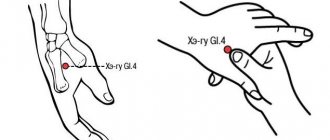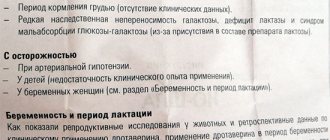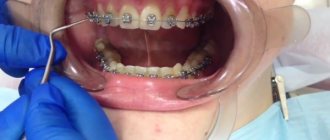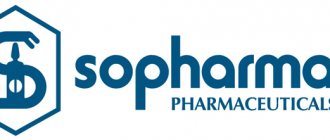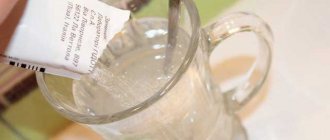Composition and release form of the drug
The drug belongs to the group of antiplatelet agents that require oral administration. The tablets dissolve easily in water, are white, round in shape and have a flat surface with a horizontal line in the middle. The main component and active ingredient of the drug is acetylsalicylic acid.
The composition of the drug, in addition to the main substance, includes the following components:
- lemon acid,
- potato starch.
Tablets are available with different amounts of active substance - 50, 100 and 250 mg. The medicine is packaged in special blisters of 10 pieces. The drug is sold in pharmacies in the public domain and is available without a prescription. Tablets should be stored for no more than four years from the date of manufacture, which is indicated on the packaging. After the expiration date, it is strictly forbidden to take the medicine. The packaging should be stored away from direct sunlight and out of the reach of children.
Action of aspirin
Aspirin is a drug for the symptomatic relief of dental, headache, and muscle pain.
The composition of aspirin includes acetylsalicylic acid, a non-steroidal anti-inflammatory drug. Most often, aspirin is often prescribed to relieve tooth pain.
Attention! Acetylsalicylic acid deactivates the enzyme that affects the synthesis of prostaglandins and thromboxanes. The former are responsible for the development of inflammation, the latter are involved in the process of blood clotting.
This is the mechanism of action of all non-narcotic painkillers, but these drugs vary in safety and effectiveness.
The chemical structure of prostaglandins (PGs) varies. There are 3 types of PGs:
- 1st type of PG – beneficial (natural). Type 1 does not trigger an inflammatory reaction, but restores the gastric mucosa;
- Type 2 PG – activates inflammatory processes and increases swelling, and also irritates nerve endings. Type 2 is the main target for pain medications;
- Type 3 PG increases the temperature, but the intensity of pain does not change.
Medicines containing acetylsalicylic acid, including aspirin, are not selective, that is, selective. They stop all types of agents that provoke inflammation. Such drugs relieve pain symptoms, lower body temperature, but also cause side effects. This may be increased bleeding, bronchospasms and others.
Selective anti-inflammatory modern drugs do not have serious contraindications, since they do not affect the synthesis of beneficial PGs and have an enhanced analgesic effect.
Due to its low pain-relieving ability, aspirin is often useless for relieving toothaches. An exception is the use of aspirin in combination with other drugs. It can be used in case of pathological processes due to the presence of fever or the need for the antiplatelet effect of the drug.
When is Aspirin indicated: will it help with toothache?
To figure out whether Aspirin helps with severe toothache, you should find out the mechanism of its effect on a person and local areas of pain. When the active substance enters the body, the synthesis of protaglandins is disrupted. Substances are considered the main provocateurs of the development of fever or inflammation. They also provoke the appearance of pain.
The drug inhibits the proliferation of prostaglandins and thereby dilates blood vessels. This helps to increase the level of sweating in the patient, which is explained by the antipyretic effect of the drug.
The use of drugs containing acetylsalicylic acid leads to a decrease in the sensitivity of nerve endings in the patient’s body. This occurs due to the fact that the analgesic effect is pronounced and the active substance has a quick and powerful effect. The drug is excreted naturally through the kidneys.
- According to the instructions, Aspirin is used for persistent toothache and for some other types of disorders.
- The drug is quite effective for pain in the muscles, joints and back. The medicine is not only an anesthetic, but also an antipyretic.
- Penetrating into tissue cells, the medicine thins the blood and thereby prevents the formation of blood clots. People who constantly take the drug suffer less from disruption of the cardiovascular system. The medicine is not addictive.
Acetylsalicylic acid is prescribed everywhere for severe toothache, however, the drug can also have a good effect on other diseases:
READ ALSO: What is the best medicine for toothache?
- fever,
- rheumatoid arthritis,
- Dressler syndrome,
- migraine,
- neuralgia,
- osteoarthritis,
- thrombophlebitis,
- heart attack,
- pain in joints and muscles,
- osteochondrosis,
- lumbago.
The list of diseases for which the medicine may be useful does not end there, since the medicine is prescribed at the discretion of the attending physician. As already noted, Aspirin is prescribed in most cases for severe toothache. This is due to the fact that the drug has a pronounced analgesic effect, however, it is worth remembering that taking more than 4000 mg of the substance per day is prohibited. Otherwise, various severe damage to internal organs may develop.
Boric acid, mixed with Aspirin, is good for severe toothache. Toothache goes away quickly, and the composition has a therapeutic effect.
Is acetylsalicylic acid effective for toothache?
Almost every adult knows what acetylsalicylic acid helps with.
The drug, popularly known as Aspirin, has a pronounced antipyretic effect and can reduce inflammation and the pain that arises from it. In addition, in reduced dosages it is an antiplatelet drug that prevents platelet aggregation.
In our article today, you will figure out whether acetylsalicylic acid can help with toothache and when it is unsafe to take it.
2 style=”text-align: center;”>About the medicine
The active substance is obtained by esterification of salicylic acid with ethanoic acid. The first pharmaceutical company to produce tablets with this component was the German concern Bayer.
This happened back in 1899.
The drug was given the trade name Aspirin, which is now so widely known that analogues of the drug based on the active substance are popularly called “by default” by the same name.
3 style=”text-align: center;”>How does the substance work?
Medicines with acetylsalicylic acid as an active ingredient are classified as NSAIDs. The action of the medication is aimed at:
- pain relief;
- decrease in body temperature;
- relieving inflammation;
- prevention of platelet aggregation.
Achieving the above effects is possible due to the ability of the substance to influence the enzyme cyclooxygenase. By reducing the activity of the enzyme, acetylsalicylic acid stops the production of substances present at the site of inflammation - prostaglandins, thereby relieving unpleasant symptoms - pain, fever, inflammation.
The medication is classified as a non-narcotic analgesic.
The antiplatelet effect of the drug is observed when it is taken in reduced dosages (2-4 times lower than when the drug is prescribed as an analgesic).
In reduced concentrations, acetylsalicylic acid reduces blood clotting and prevents the formation of blood clots. This may be due to inhibition of cyclooxygenase.
This enzyme affects the synthesis of thromboxane in platelets, a substance whose action causes blood cells to stick together.
Note: in higher dosages, Aspirin will also have an antiplatelet effect, but in addition to this, other effects of the analgesic will be observed - pain relief, reduction of fever, elimination of inflammation. If taking the drug is necessary only as an antiplatelet agent, these actions turn out to be unnecessary, and for this reason the dosage is reduced.
3 style=”text-align: center;”>What does the medicine help with?
The medicine is produced in tablet format: for oral use in finished form and “fizzy”, dissolving in water. Ascorbic acid is often added to effervescent tablets. Their direction of action is pain relief; they are taken for migraines and headaches.
Tablets may have different amounts of active ingredient. For the drug to act as a remedy against fever and pain, the tablet must contain at least 300 mg of the active ingredient, more often 500 mg.
The drug, taken to prevent the development of thrombosis, contains 100 mg or 300 mg of the active substance.
Note: the fact that the medicine is an antiplatelet agent will be indicated by the “Cardio” mark on its packaging.
Instructions for the use of acetylsalicylic acid indicate that tablets (containing 300-500 mg of ASA) are used to relieve pain. Take the pills if:
- headache (particularly with a hangover);
- joints hurt;
- there is muscle pain;
- toothache occurred;
- discomfort caused by menstruation in women is observed;
- suffer from painful sensations caused by neuralgia.
We recommend that you find out how a cyst on the jaw manifests itself and what methods are used to treat it.
Read: why pathology such as Hutchinson’s teeth develops and how it is treated.
In addition, the medicine is prescribed:
- as a drug against fever in diseases of an infectious-inflammatory nature that occur with elevated body temperature;
- for rheumatic diseases;
- with the “aspirin triad” and “aspirin asthma” to reduce the level of susceptibility to the substance.
Aspirin Cardio is prescribed to prevent the development of thrombosis, embolism, stroke, myocardial infarction, and Kawasaki syndrome.
2 style=”text-align: center;”>Acetylsalicylic acid for toothache
It is worthwhile to dwell on the advisability of taking Aspirin for toothache. The analgesic effect of the drug is weakly expressed, that is, acetylsalicylic acid helps with mild toothache.
If the pain is caused by pulpitis or periodontitis, the tablet is unlikely to have a significant effect.
The effect of Aspirin will be more pronounced if the discomfort develops against the background of an inflammatory disease. If toothache is a symptom of tooth decay, you should not take acetylsalicylic acid. It is better to use analgesics that are more effective in this matter: Ibuprofen, Ketorol, Ketanov and others.
If there are no alternatives, and Analgin is the only analgesic available in the home medicine cabinet, taking the medication for toothache should be carried out strictly in accordance with the instructions.
For pain syndrome, adults take a single dose of 500 mg to 1000 mg of the drug. A maximum of 1 g of active substance can be taken at a time.
The maximum daily dose is up to 6 tablets of 500 mg, that is, no more than 3 grams of the drug.
Important: it is safest to take the tablet after a meal, with plenty of water.
If you take an Aspirin tablet and do not feel any pain relief, do not increase your dosage. This will not affect the effectiveness of the drug, but will increase the likelihood of side effects.
You cannot take acetylsalicylic acid as an analgesic for more than 7 days in a row! Do not forget that it makes no sense to relieve toothache for a long time. If your tooth is sick, you can only get rid of the pain in the dentist’s office. The longer you endure the pain and delay visiting a doctor, the larger the damage will be. Ignoring treatment can lead to tooth loss.
Important: if you are about to have a tooth removed, taking Aspirin is not recommended. The medication may affect the healing of the postoperative wound and increase the duration of bleeding.
2 style=”text-align: center;”>Safety of taking the drug
The instructions for use of the drug indicate that acetylsalicylic acid is unsafe at temperatures in children under 15 years of age. Taking tablets as an antipyretic in childhood leads to necrosis of liver cells and further cessation of the functioning of the organ - the development of Reye's syndrome.
The danger of taking the drug increases against the background of viral diseases (measles, rubella, influenza). With the development of Reye's syndrome, there is a high probability of death, since it is possible to restore liver function only in very rare cases.
We recommend reading about the symptoms and causes of purulent pharyngitis.
Read: why the back of the throat may hurt.
Find out what are the symptoms of a cyst under the tongue.
Reye's syndrome appears 2-3 weeks after recovery from an illness for which Aspirin was used.
The child develops severe headaches, stool disturbances, stools become light in color and urine the color of beer, and pain appears in the liver area.
The progression of the pathology is accompanied by bleeding and changes in blood composition. Liver failure develops rapidly and coma occurs.
Attention to parents: taking medications with acetylsalicylic acid as an antipyretic in childhood is dangerous! Be sure to study the instructions for medications to make sure that this substance is not included in the medications your baby is taking.
The drug should not be taken by children.
In addition to the prohibition on taking the medication in childhood, the medication is unsafe for people with the following diseases:
- exacerbation of chronic ulcers;
- presence of bleeding in the gastrointestinal tract;
- hemophilia;
- "aspirin triad";
- vitamin deficiency K;
- portal hypertension;
- dysfunction of the liver and kidneys;
- gout;
- aortic dissection.
Taking the medication is prohibited for women during pregnancy and lactation.
If you take the drug in the presence of the above contraindications, a number of side effects may develop, including disturbances in the functioning of the gastrointestinal tract (nausea, abdominal pain, vomiting), the central nervous system (headaches, dizziness, tinnitus and decreased vision), and the circulatory system (anemia, prolonged bleeding). Allergic reactions may develop, manifested by Quincke's edema, urticaria, and bronchospasm. This is not a complete list of side effects. Before taking the pill, carefully read the instructions!
Source: https://StopParodontoz.ru/atsetilsalitsilovaya-kislota/
Directions for use and dosage
How to take acetylsalicylic acid for toothache and other diseases is described in detail in the attached instructions. It is important to correctly determine the dosage for a particular person so that this does not cause negative reactions from the body. An overdose of the drug is possible and can lead to the following consequences:
- disturbance of the acid-base balance in the body, as well as electrolyte,
- confusion,
- nausea and vomiting,
- pain in the abdominal area,
- dehydration of the body,
- hearing and vision impairment,
- tremor of the limbs,
- state of drowsiness.
In some situations, an overdose of the drug can lead to metabolic acidosis and coma.
According to the instructions, the procedure for using the medicine is as follows:
- tablets are taken after meals,
- The medicine must be taken with regular, or preferably mineral-alkaline, water,
- It’s very good to use milk instead of water,
- The dosage should be determined by a doctor, and if this is not possible, it is worth taking 1-2 tablets, which is 500-1000 mg. (dosage is indicated for an adult patient),
- It is allowed to take the medicine in an amount of no more than 3-4 tablets per day,
- the course of taking the drug cannot exceed two weeks, and the maximum allowed dosage per day is 6 tablets.
The best tablets for toothache: fast and effective
Painkiller tablets for toothache work on two principles: they can soothe the pain either by reducing inflammation or by blocking the transmission of pain impulses to the brain. How to relieve moderate and severe toothache at home -
Ibuprofen, Ketoprofen, Ketorolac –
If you have a toothache, then drugs based on ibuprofen, ketoprofen, ketorolac and nimesulide are the best remedies for toothache. They belong to the group of NSAIDs, i.e. non-steroidal anti-inflammatory drugs. Below we list the trade names of NSAID-based drugs that will help you with toothache at home...
- The drug "Nurofen" (UK) –
According to statistics, it is the most popular toothache medicine in the world.
There is regular Nurofen - it contains 200 mg of ibuprofen, as well as Nurofen-Forte, containing 400 mg of ibuprofen. For an adult with acute toothache, of course, it is worth taking Nurofen-Forte. The drug has an excellent effect for relieving pain of moderate severity. Nurofen for toothache can be taken even by pregnant women at a dosage of 200 mg (only in the 1st-2nd semester, not in the 3rd semester), as well as children from 6 years of age. Take with caution for diseases of the stomach and intestines. Nurofen price will be only about 100 rubles for a package of 10 tablets (as of 2020). Both forms cost about the same.
- The drug "Ketonal" (Slovenia) –
This is another drug from the NSAID group containing ketoprofen.
This is the best remedy for high intensity toothache. Ketonal is available in tablets of 100 mg or 150 mg (pack contains 20 tablets). 150 mg tablets have an even stronger and longer-lasting effect. Ketonal price will be from 170 to 230 rubles (both forms of 20 tablets cost approximately the same). There is a form of 100 mg, 10 tablets. – its cost is from 70 rubles. Keep in mind that ketoprofen tablets also have very serious side effects. If you are asthmatic or have stomach problems, then you should not take it. Admission to persons under 18 years of age and pregnant women is prohibited. It is advisable to use Ketonal for toothache only for a few days, no more.
- Ketanov (India) and Ketorol (India) –
These two drugs have the same composition; they contain the NSAID “ketorolac”, which is an analogue of ibuprofen and ketoprofen. If you are looking for the most powerful pain reliever for toothache, then Ketorol and Ketanov perfectly relieve even very severe pain.
However, we recommend taking these drugs only as a last resort, because... they have a terrifying list of contraindications and side effects. Ketanov and Ketorol for toothache, the price will be only about 60 rubles for a package of 10 tablets.
- Nimesil (Italy) and Nise (India) –
These drugs are made on the basis of the NSAID "nimesulide". These are strong drugs with fairly moderate side effects, which are less than those of drugs based on ketorolac. Nimesil and Nise are used for toothache of medium and high intensity.
Important: this is why, for moderate pain, we primarily recommend drugs based on ibuprofen (Nurofen 200 or 400 mg) - due to minor side effects, and for pain of moderate and high intensity - ketoprofen, nimesulide or ketorolac.
Paracetamol for toothache -
Paracetamol-based drugs do not act on inflammation, like NSAID-based analgesics, but they prevent the transmission of pain impulses to the brain, i.e. you still have pain, but your brain doesn't feel it. In addition, you can combine paracetamol with aspirin or any non-steroidal anti-inflammatory drug, which will increase the analgesic effect.
Well-known paracetamol-based products are Panadol and Efferalgan. Paracetamol for toothache should be used at a dose of 500 mg per single dose (for an adult), however, for severe pain, the dosage can reach up to 1000 mg. Panadol price will be only about 60 rubles for 12 tablets of 500 mg. Paracetamol can be used even in pregnant and lactating women throughout all 3 semesters.
Analgin and Aspirin -
Analgin for toothache: how to take... a single dosage for 1 dose is 500 mg. Analgin has a fairly weak effect, but is still able to reduce its intensity. Under no circumstances should analgin be used by asthmatics, pregnant or lactating women, or those with blood diseases, and it is not advisable to use it in children.
Aspirin for toothache can also only slightly reduce the pain syndrome due to its weak anti-inflammatory effect. Keep in mind that aspirin tends to reduce blood clotting and therefore should not be used for pain after tooth extraction or other surgical interventions.
Antibiotics for toothache -
Antibiotics are antimicrobial agents, i.e. they act directly on bacteria. Antibiotics for toothache are in no way able to quickly reduce the pain syndrome, because... they do not have an anti-inflammatory effect, and are not able to block the passage of pain impulses to the brain, like traditional analgesics.
If you are willing to endure pain for a long time, then with long-term use of antibiotics you will, of course, notice the effect. But as soon as you finish their course, inflammation and pain will appear again. Those. They should only be used if you are in the tundra, and your first aid kit only contains an antibiotic, but nothing else (24stoma.ru).
Contraindications
There are a number of contraindications for which the use of the drug is prohibited. For children under 15 years of age who suffer from allergies or bronchial asthma, this drug is contraindicated as it can cause a seizure or anaphylactic shock.
In addition, it must be remembered that the medicine affects the process of platelet aggregation, which means there is a risk of bleeding. If tooth extraction is planned in the future, then the medication cannot be used. At least 5 days should pass between the last Aspirin dose and surgery.
The patient should take into account that taking Aspirin cannot replace dental and therapeutic treatment. Despite the fact that the tablets have some therapeutic effect in general, the drug acts as a pain reliever and can only temporarily relieve the patient from acute pain. You should not wait for the pain to intensify and aggravate the situation, but it is best to consult a dentist and undergo the necessary treatment.
When to use aspirin?
Although aspirin helps little for toothache, it is prescribed for inflammatory processes of the tooth and gums, which are accompanied by an increase in body temperature.
Temperature often occurs:
- after tooth resection due to stress;
- with inflammatory processes in the root of the tooth;
- with pulpitis.
It is in such cases that aspirin is prescribed, which helps reduce fever. It also partially eliminates pain, but not to an sufficient extent.
The medication also relieves inflammation and slows down the spread of bacteria. However, if bacteria are found in the oral cavity, antibiotics must be used. Aspirin against inflammation can only be used as an additional remedy.
Important! Please note that during tooth resection, aspirin can only be taken if the risk of bleeding is excluded.
Drug interactions
- Aspirin tablets should not be taken together with other drugs from the group of non-steroidal anti-inflammatory substances - ibuprofen, nurofen, inomethacin. Taking these drugs at the same time may increase the risk of side effects and symptoms, including overdose. In some cases, patients experienced liver and kidney failure. The most dangerous consequence of taking Aspirin, together with other drugs, is coma.
- When taken simultaneously with drugs from the antacid group, a decrease in the therapeutic effect of acetylsalicylic acid is observed. The active substance is absorbed into the bloodstream more slowly and the patient does not feel any relief.
- You should not take Aspirin together with anticoagulants, because there may be a risk of internal bleeding due to severe blood thinning.
- When using acetylsalicylic acid in parallel with diaretics, the effectiveness of the drugs is noticeably reduced.
- Drinking alcohol together with Aspirin can lead to serious poisoning and intoxication of the body.
What is better for toothache - Analgin or Aspirin?
The drug "Analgin" is an analgesic, that is, it is a pain reliever. “Aspirin,” in turn, acts as an anti-inflammatory non-steroidal drug, that is, it primarily helps with inflammation. But they have many similar actions, for example, an analgesic effect. But with Aspirin it manifests itself to a lesser extent. And Analgin also has antipyretic properties like Paracetamol.


